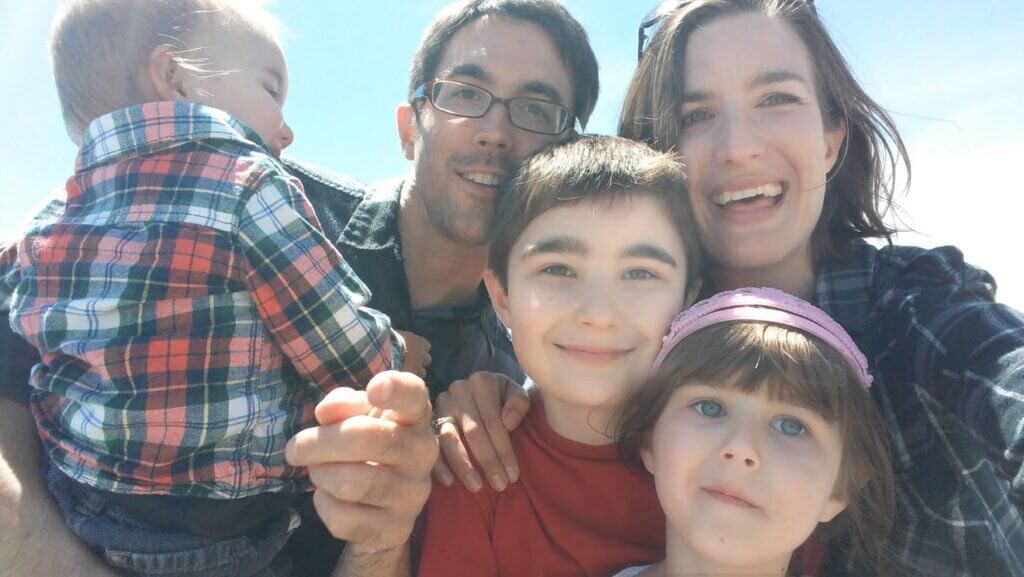What employers have to know about grief: My son’s death didn’t come on my company’s timeline
Every day, my wife and I relive the trauma of losing our son. Thankfully, my employer and coworkers were understanding. Not everyone is as fortunate.
Death doesn’t schedule time on your calendar, and it doesn’t always give advance notice. Sometimes, as it did with our oldest child, it breaks into your world unexpectedly, mercilessly, snatching your attention away from whatever you had thought was important in that moment.
Not a day goes by that my wife Genece and I do not relive the trauma of losing our son Jonathan. The September day was otherwise so typical — as typical as a day can be during a pandemic. It had the usual joys and the usual frustrations. But then Genece found Jonathan, badly injured. No pulse. No breath.
I was in our home office, headset on, chatting with colleagues. I didn’t hear Genece outside screaming for help. But then she entered the office. I didn’t understand her at first. The words made no sense: “I think Jonathan is dead.” She repeated these words between sobs and panicked breaths.
Right now, as I write this, I feel like I’m back in our backyard that day, falling to my hands and knees as Jonathan lies on his back, pale and unmoving. I hear the sirens approaching, see the medics surround him, gasp with relief when they restart his heart.
Now I’m in our kitchen. I’ve come into the house to check on Jonathan’s two younger siblings. They are huddled close, arms around each other, shaking. The sight of them so afraid wrecks me now like it wrecked me then. I don’t know what to say to their questions, other than to command them not to go outside.
Now I’m sitting with Genece in the hospital, talking to doctors who know there is no hope.
Two days later, Jonathan passes away. He is only 14. Genece and I are by his side, telling him we love him. His heart is beating. And then it isn’t. His eyes, slightly opened but unseeing, glimmer. And then the light is gone.
Time and freedom to grieve
This is my grief. It is reexperiencing the horror and hopelessness of those two days, over and over again. It is the panic that strikes me when one of our surviving children isn’t where I expect them to be. It is unceasing devastation, like heavy claws either squeezing or slowly burrowing into my heart, never fully letting up. It is guilt and what ifs and my imagining all the little ways the day could have been different. It is the heartbreak triggered by every little reminder that Jonathan lived and loved and struggled and dreamed. It is the grueling work of healing, mostly unseen, always exhausting.
My grief too has no respect for my schedule, but I am more fortunate than some. Family, friends, colleagues, neighbors, school personnel, and even strangers gave their time and resources to help us. I was able to drop everything and not worry about picking up the pieces. I informed my boss and colleagues what had happened, that I would be out, and that I didn’t know when I would return. And that is all I had to do.
Several weeks passed before I felt able to return to my job, and even then, getting back into the swing of things was slow. I was neither efficient nor productive that first week back. Weeks later, I still struggle to focus and finish projects. It’s hard for me to care about a future where Jonathan isn’t with us. My family is struggling too, and at times I have to step away from my desk, for them if not for me. Our lives have new rituals, some planned, some impromptu, all of them needed to heal our hearts and get us through the day.
So I am fortunate. I did have the time and space and means to grieve. And I still do. Many don’t.
In the United States, the typical bereavement leave is three to seven days. If I had been given only three days of leave, I would have been expected back to work a few days before we held the funeral. After seven days, I wasn’t functional, let alone productive. I don’t know how people do it, other than that they have no choice. We have many freedoms in the United States. The freedom to grieve is rarely one of them.

Making room for grief
To make matters worse, our culture isn’t conducive to grief. Death may be a necessary disruption, but grief better be short-lived. Jobs need doing. Bills need paying. Kids need schooling. Homes need managing. We’re pressured to grieve out of sight, preferably on our own time.
But grief, too, grows impatient for our attention. For me, it is like a wolf in a cave, never entirely silent. I hear it breathing. I sense its weight. I fear its teeth and claws, and I dread the moment it will strike. And when it does, I’m carried back into my worst memories and pain. My chest tightens. It feels like I’m terrified that what has already happened will occur again, as though Jonathan is still in danger. I’m never free, and when I’m not in terrible pain, I feel like I ought to be.
To my colleagues, I probably appear to be holding up reasonably well. I’m able at times to smile, laugh, and joke. That isn’t to say my grief isn’t evident to the members of my team, however blurred it may be over the computer screen. I’ve added to their workloads without any warning, and I will again. They’re worried about me and about adding to my trauma by saying or doing the wrong thing. You can’t keep grief out of the workplace. It will be shared. The alternative is to make a place for it.
How organizations support their employees’ freedom to grieve will depend on their means and the nature of their business. It’s also worth noting that each person’s grief is unique — an open world, not a linear path. What has helped me through my grief may not be of use to someone else. What everyone grieving needs, however, is the time and space and resources to do all the work that grief requires.
Ultimately, collectively building a society that makes room for grief is beyond the scope of employers and not something they alone can shoulder. Grief will forever be stifled in an always-on culture where time is chiefly money and we feel compelled to squeeze ourselves and each other for every last drop of economic value.
But even as things stand, employers can support grieving employees, a lot of whom are grieving at this moment due to the pandemic. Employers can educate themselves and their employees about grief (perhaps with the help of a grief counselor) so they know what to expect and what kind of support tends to be the most helpful. They can offer bereavement leave, mental health coverage, and flexibility when the employee returns.
I know that I will work through my grief, and someday the horror will not be ever-present. I know this from experience because we’ve lost a child before — a newborn in 2009 — and we did go through it and get through it. The sadness is still there, but it doesn’t hurt so much. With Jonathan, it doesn’t yet feel like the pain will ever cease. There are so many more memories to process and so many more regrets. There’s so much more work to do.
Time to get back to it.
###
This article was authored by Mineral Senior editor, Kyle Cupp, and originally published on November 18, 2020 by USA Today.


